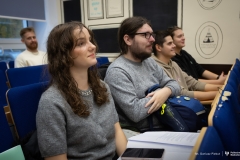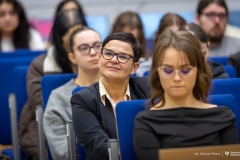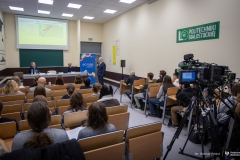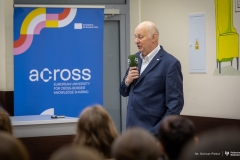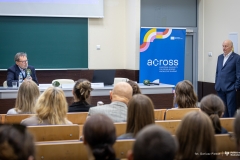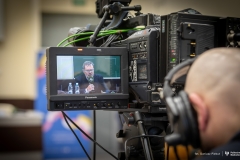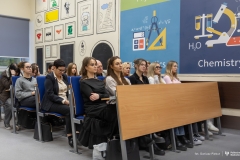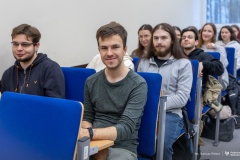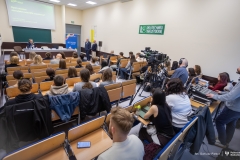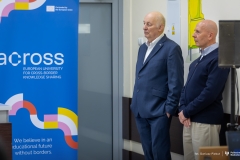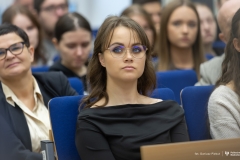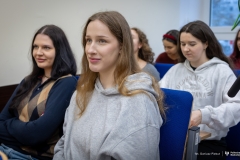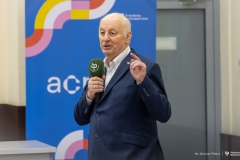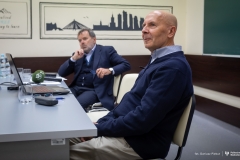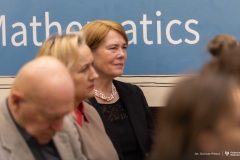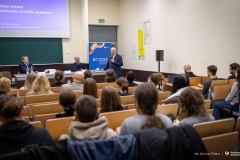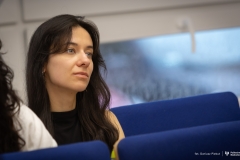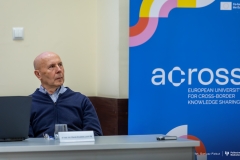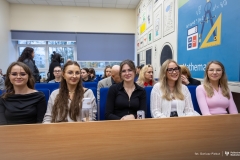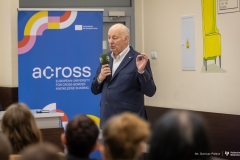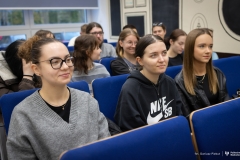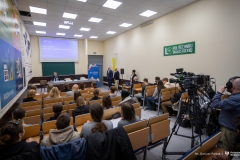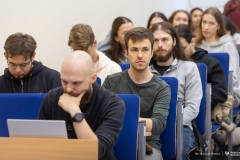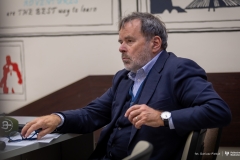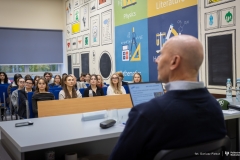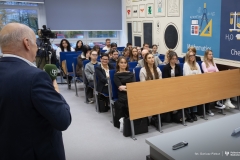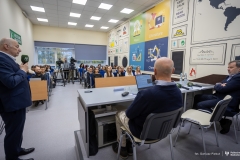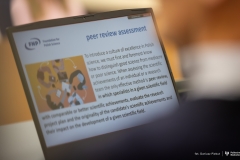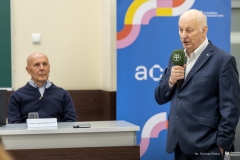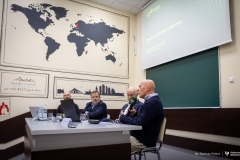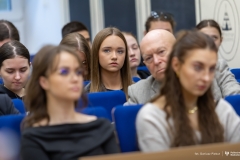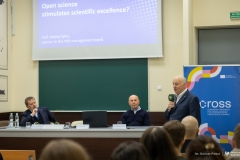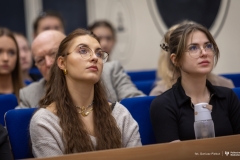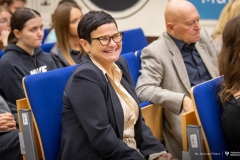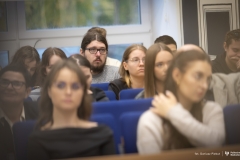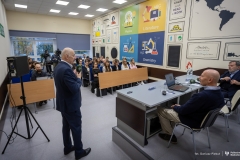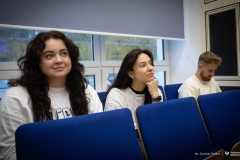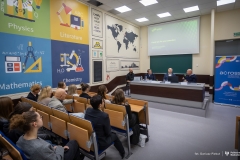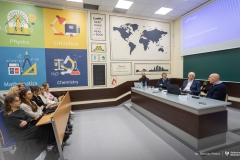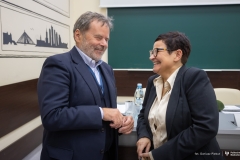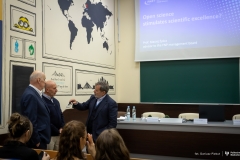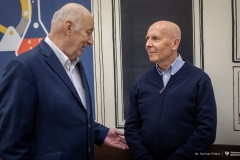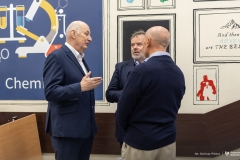Openness in science as a path to excellence. Bialystok University of Technology hosts a meeting with Prof. Maciej Żylicz
24-10-2025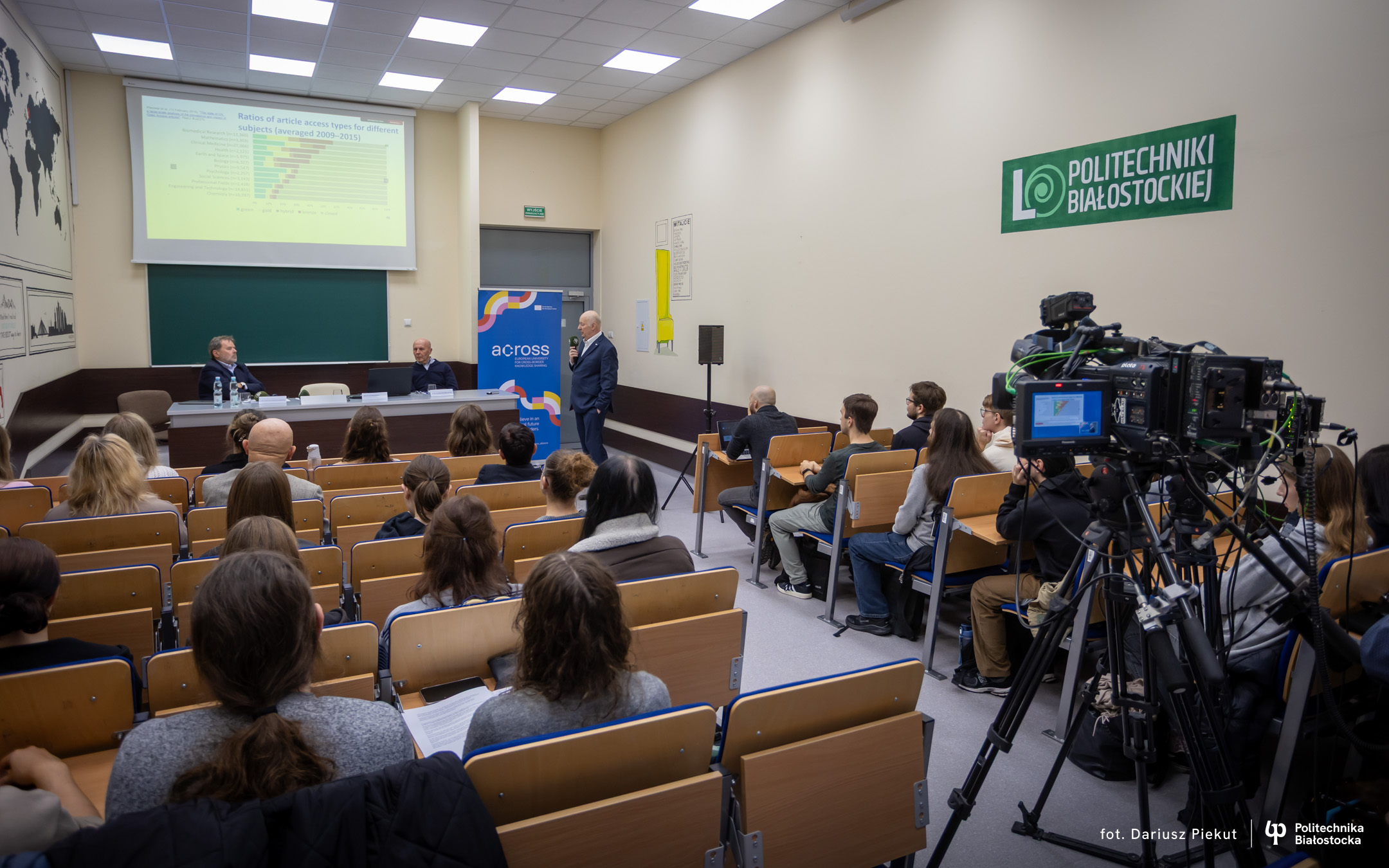
The guest of the University was Prof. Maciej Żylicz, molecular biologist and President of the Foundation for Polish Science (2005–2025), who delivered a lecture entitled “Open Science stimulates scientific excellence?” The discussion also featured Assoc. Prof. Marek Drużdżel, PhD, Eng., from the Faculty of Computer Science, an expert in artificial intelligence and decision support systems. The meeting was chaired by Assoc. Prof. Krzysztof Kurzydłowski, DSc, PhD, Eng., Director of the Institute of Mechanical Engineering.
Open Science – an opportunity and a challenge
Prof. Żylicz began with a definition: Open Science is a movement that aims to make research transparent, accessible and reusable by other researchers and by society. – There is no doubt that this is the direction we must follow. But we need to do it wisely, because it is easy to fall into the trap of apparent openness – he emphasised.
He pointed out that a key element of Open Science is reproducibility of results, i.e. the ability to verify experiments by independent research teams. – If research results are not reproducible, society stops trusting science. We must ensure credibility, because it is credibility that builds trust and funding – said the professor.
Peer review and genuine scientific excellence
A large part of Prof. Żylicz’s speech was devoted to the peer-review system, which he described as an irreplaceable component of research quality. – Reviewing papers is like democracy – imperfect, but no better system has been invented – he noted. However, he added that the system requires constant oversight, avoidance of conflicts of interest and the selection of reliable reviewers.
The professor also explained that scientific excellence is about more than just the number of publications. – It is not about hundreds of papers, but about a few outstanding achievements that truly bring something new. At the Foundation for Polish Science, we assess five, at most ten key papers – the ones that demonstrate the true value of a researcher – he said.
He stressed that scores and journal prestige cannot replace quality. – One must not equate the value of research with the journal’s name. Only 2–3 percent of publications in the most renowned periodicals are truly breakthrough works. Science needs courage, not repetition of patterns – he emphasised.
Collaboration and public trust
According to Prof. Żylicz, Europe is losing its scientific position to China and the United States because it invests too little in research and maintains overly complex funding systems for too long. – We must convince society that science is necessary and that money spent on research is an investment in the future. Otherwise, we will always be at the bottom of the ranking – he warned.
In his opinion, one possible solution could be combining grant-based funding with direct institutional support. – Half of the funds should go to universities, and the other half through the grant system. Only then will researchers have the freedom and conditions to generate new ideas – he said.
Discussion: quality, interdisciplinarity, commercialisation
Later in the discussion, Assoc. Prof. Marek Drużdżel stressed that openness in science must not come at the expense of quality. – It’s not about thousands of publications, but about a few that change the way we think. The best discoveries emerge at the intersection of disciplines – where mathematicians, computer scientists and biologists meet – he said.
He also highlighted the need to balance openness with the protection of intellectual property. – Let’s make research results available, but not always immediately the raw data or source codes – their preparation often takes years of work – he explained, referring to his own experience in the commercialisation of scientific software.
Polish science in dialogue with the world
At the end, Assoc. Prof. Krzysztof Kurzydłowski emphasised that open science requires above all international cooperation. – This is the most effective way to enhance the quality and impact of research. Science thrives where there is dialogue and trust – he underlined.
The meeting was organised as part of the Open Science Week, a joint initiative of universities forming the European University ACROSS, of which Bialystok University of Technology is a partner. The event brought together representatives of academic communities from Poland and abroad.
The event was broadcast by Platon TV on the official YouTube channel of Bialystok University of Technology.
(aj)
Project: 101177485-Across-ERASMUS-EDU-2024-EUR-UNIV
